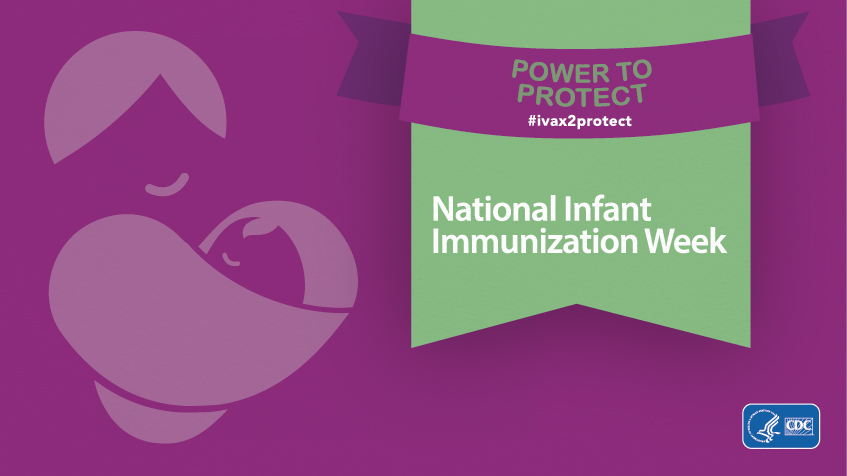Why Are Immunizations Important for Babies?
Before birth mothers pass antibodies (disease-fighting proteins made by the body) to some diseases to their babies. Babies that breastfeed continue to get more antibodies through their mother’s milk. But in both instances the protection is temporary.
Immunization (vaccination) is a way to create immunity to (protection from) certain diseases. This can be done by using small amounts of a killed or weakened germ or by using a protein from the germ or a piece of its genetic material. Germs can be viruses (such as the measles virus) or bacteria (such as pneumococcus).
Vaccines stimulate the immune system to react as if there were a real infection. It fends off the “infection” and remembers the germ. Then, it can fight the germ if it enters the body later.
Giving babies the recommended vaccinations by age two is the best way to protect them from 14 serious childhood diseases.
How Many Immunizations Does My Baby Need?
The American Academy of Pediatrics (AAP) recommends combination vaccines (rather than single vaccines) whenever possible to help lower the number of shots a child gets. This has been shown to be very safe. From the day a baby is born, their immune system is exposed to countless germs every day. A few more in a combination vaccine is very easy for the immune system to handle.
Here is a common immunization schedule recommended by age 2:
- One vaccination for measles, mumps, and rubella (MMR)
- Four vaccinations for Haemophilus influenza (Hib), a common upper respiratory infection that can also cause meningitis
- Three to four polio vaccinations (IPV)
- Four vaccinations for diphtheria, tetanus, and pertussis (DPT)
- Three vaccinations for hepatitis B
- One vaccination for varicella (chickenpox) no earlier than age 12 months and only if your child does not develop chickenpox on his or her own (must be verified by a health care provider)
- Three vaccinations for rotavirus, a type of infection that causes severe diarrhea
- Four vaccinations for pneumococcal disease, a common cause of ear infections and pneumonia
How Can I Comfort My Baby During Immunizations?
You can swaddle your baby, leaving their legs exposed for the vaccination, and make shushing sounds near their ear. Afterward, you can gently sway or rock them, or give them the opportunity to suck, whether through breastfeeding, a bottle, or a pacifier. This will release endorphins (feel-good hormones). If you feel comfortable breastfeeding your baby at the doctor’s office (to fulfill the sucking recommendation), this alone can be an effective way to calm and distract your baby.
Vaccine Concerns
Some parents may hesitate to have their children vaccinated out of concerns that they might have a serious reaction or get the illness the vaccine prevents. However, the components of vaccines are weakened or killed and, in some cases, only parts of the germ are used. Vaccines may cause mild reactions, such as soreness at the injection site or a fever (this is an immune response). But serious reactions are rare. The risks of vaccinations are small compared with the health risks of the diseases they’re intended to prevent.
The U.S. has a long-standing vaccine safety system that ensures vaccines are as safe as possible. As new information and science become available, vaccine recommendations are monitored, updated, and improved.
By: Jordan Ryley, NP
Source:
https://www.cdc.gov/vaccines/events/niiw/key-messages.html
https://kidshealth.org/en/parents/vaccine.html
https://www.stanfordchildrens.org/en/topic/default?id=why-childhood-immunizations-are-important-1-4510
